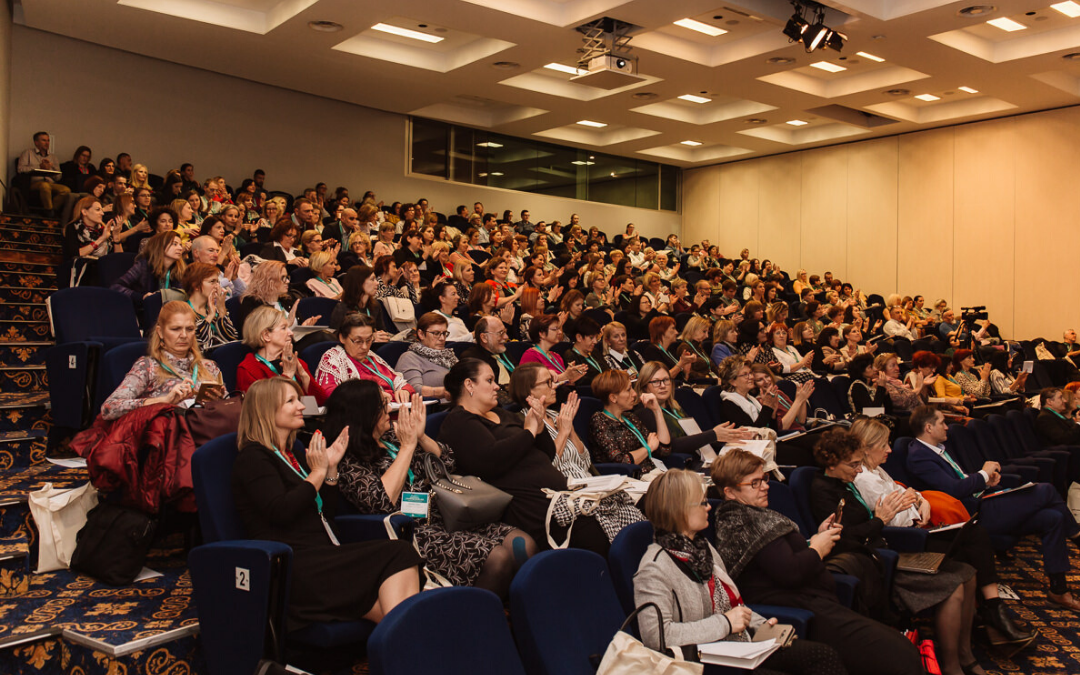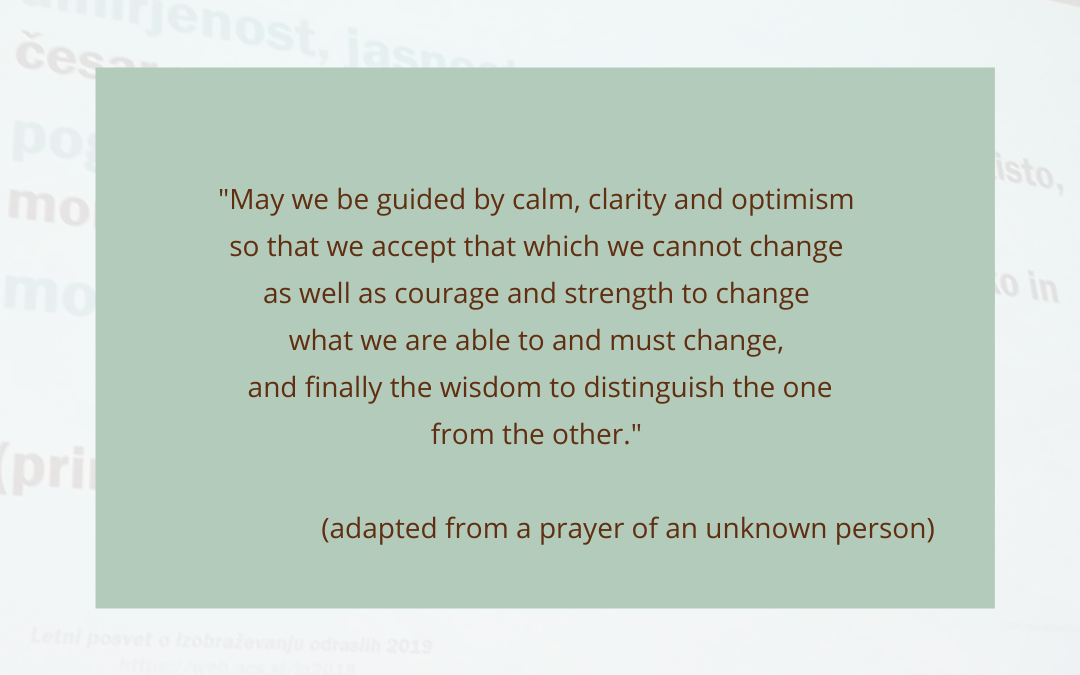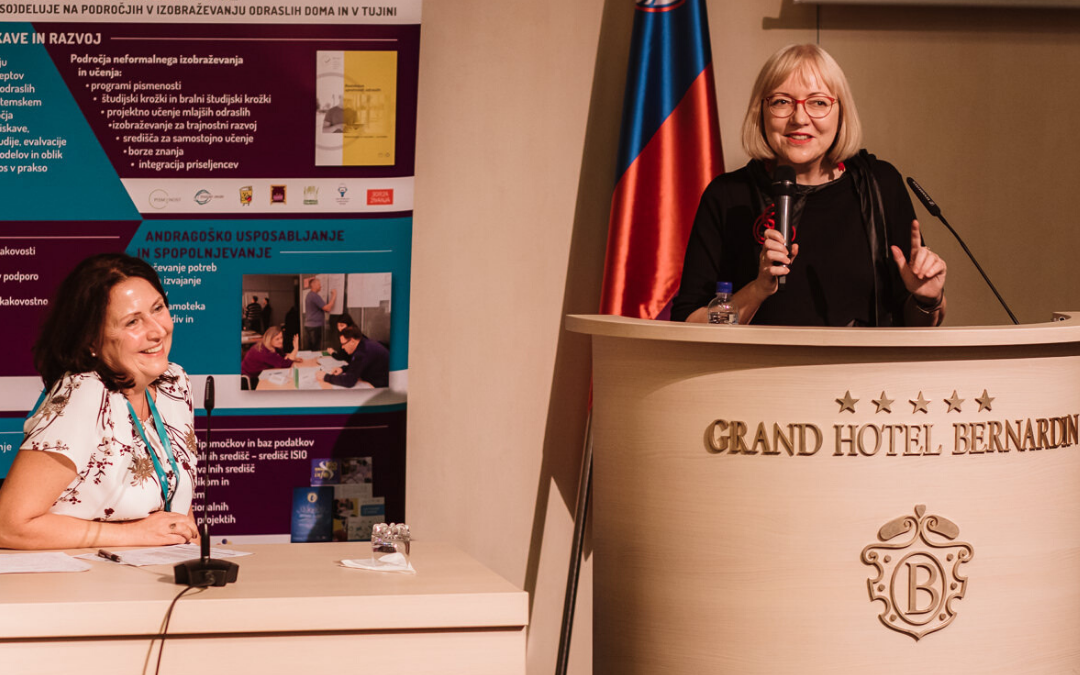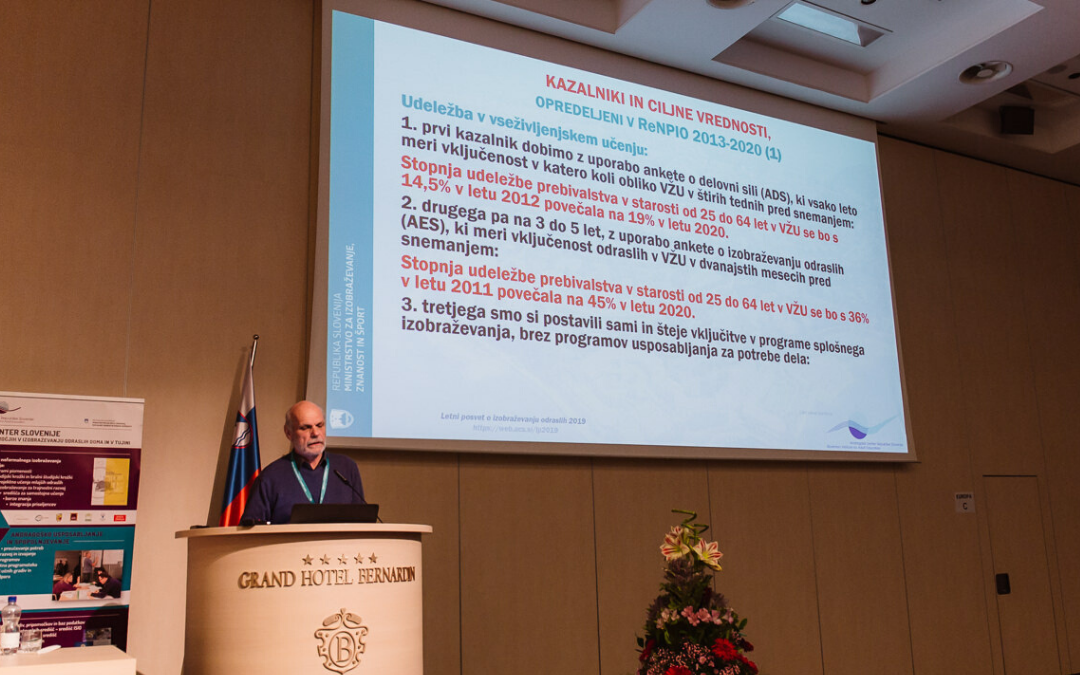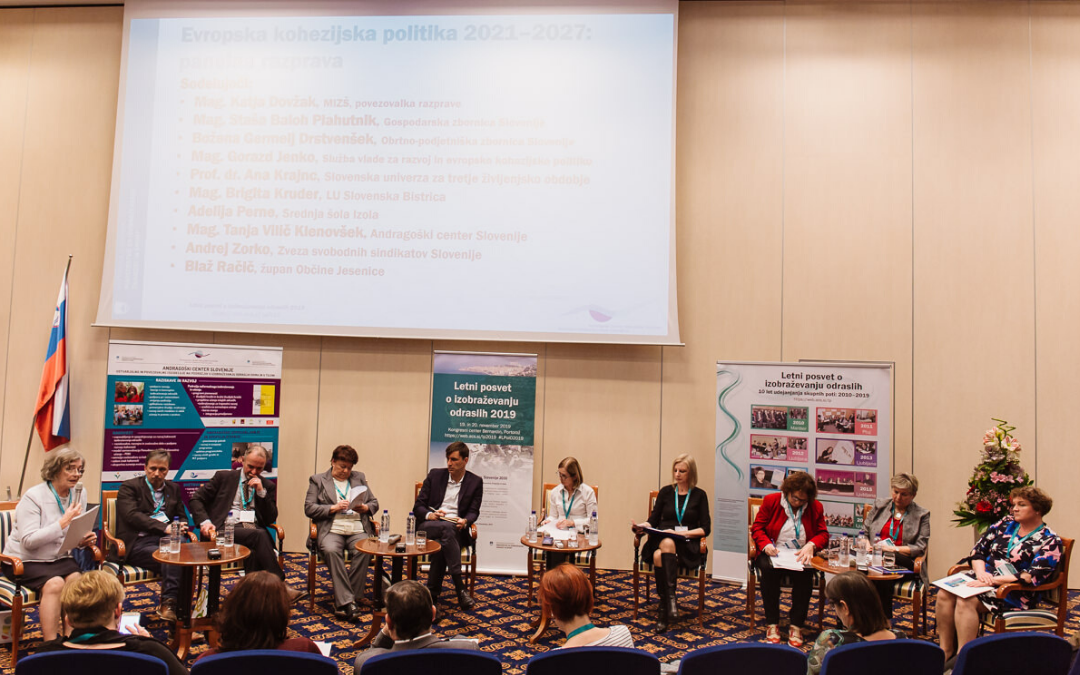No matter what they say, adult education is important. This is confirmed by our network of more than 250 participants AAEC that dealt with the whirlwinds of change on 19 and 20 November in Portorož. Zvonka Pangerc Pahernik, MSc opened it with a meaningful thought that provided the impetus for our working meeting.
Dr Renata Salecl gave a lecture with the interesting title of Passion for Ignorance in a Knowledge Based Society, in which she highlighted the gap between the courage to admit that we do not know something and knowledge as a value.
The AEMP was at the centre of our discussions. The currently valid master plan will be replaced in 2021 by the new one that will apply until 2030. The planning relies on the following: Slovenian Development Strategy for 2030, Active Ageing Strategy, Agenda 2030 and Upskilling Pathways. All of the associated documents highlight the knowledge and skills for quality life and work. Learning thus enters the first and second whirlwinds. How can we ensure basic skills for everyone when it is the groups that need knowledge the most (lower education and elderly) that are the least interested? The third whirlwind that this article aims to highlight is technological change. It is closely tied to the most vulnerable people as individuals with an aversion to new things are deprived both in their personal and professional lives.
Peter Beltram, MSc from the SIAE also gave a speech in the part entitled Background. He presented the planned AEMP in the context of time and space. He namely highlighted both the advantages and the weaknesses of the current master plan in light of the domestic and international environments.
In the afternoon of the first working day, we formed groups and discussed three topics:
- target groups of the AEMP;
- objectives and priority measures of the AEMP and
- cooperation.
Most AEC in Slovenia are celebrating their 60th anniversary this year. These are institutions that address all target groups and bravely enter all AE whirlwinds in Slovenia. As shown by Dr Anja Benko in her presentation, they are like sheep using tricks to defeat wolves. In doing so, they realise the saying: “Nothing for them without them,” meaning that they observe the needs of local communities and thus achieve enviable success.
Erasmus+ projects present successful foreign practices and invite people to improve their competences, mainly the courage to learn new things. The survey results presented by Ana Stanovnik Perčič from the CMEPIUS are astounding. The question asked by Prof Dr Ana Krajnc remained unanswered however, as Erasmus+ addresses teachers and adult educators but not the elderly in this project period.
In the presentation by Estera Možina, MSc about the background for the preparation of publicly accepted adult education programmes, we could see what was done since last year’s AAEP, learn about the progress of the drafting of the proposal and find out about certain characteristics and new features of the Background of publicly accepted programmes.
The Cohesion Policy 2021–2027: Investment Priorities in the Area of Education and Training was presented by Tanja Vertelj, MSc from the MESS. We learned about the proposed development priorities, but it is unfortunately not yet known how much funding will be allocated to AE.
The continuation of this contribution and the intertwinement of all (three) whirlwinds was summarised by a panel discussion which saw the participation of a varied group of individuals and representatives of organisations, institutions and local communities. Where does our path lead then? According to Prof Dr Ana Krajnc, it undoubtedly leads to a change of the education system as we need to ensure that all individuals attain secondary vocational education that will give them the conviction and ability to choose their vocational specialisations as part of short-cycle higher education study.
Several important points of view were set forth in the discussion. There is a common desire for establishing ties: locally, with trade unions, the Chamber of Commerce and Industry of Slovenia, the Ministry of Labour, Family, Social Affairs and Equal Opportunities, project partners, the Employment Service of Slovenia, SIAE … and strengthening social dialogue.
United, we can achieve anything and everything. “If we don’t know something, it is beneficial to be anxious,” warned Dr Renata Salecl in her presentation. This statement made the minister’s appearance less painful. We, the stakeholders, mainly planners, providers and organisers of AE “do magic”, train, secure funding and cooperate. We are already doing inter-sector cooperation. However, the institutions that could actually contribute the most at the systemic level sometimes do not join in our efforts. We would warmly discourage these groups from taking Ignorital.
Ana Peklenik (ana.peklenik@acs.si), SIAE

